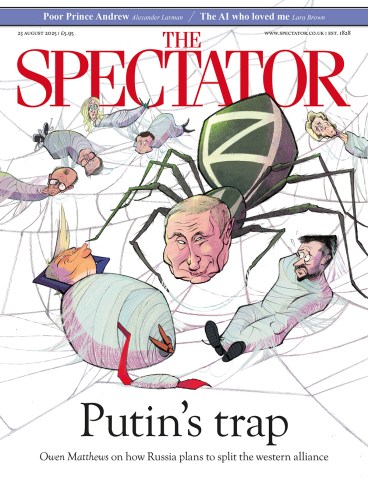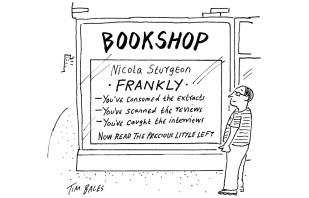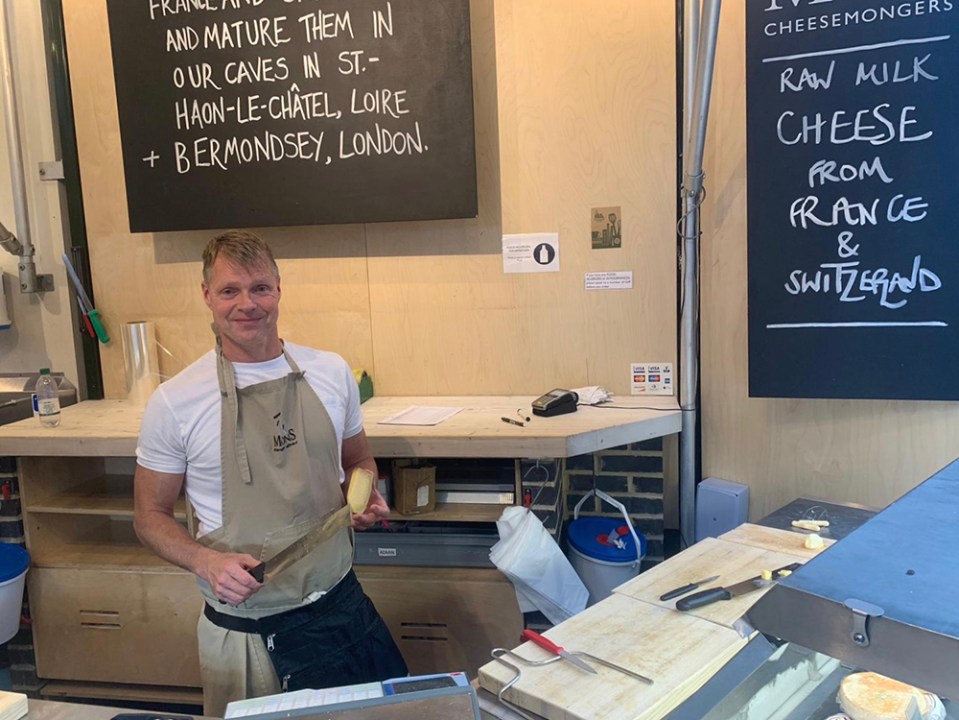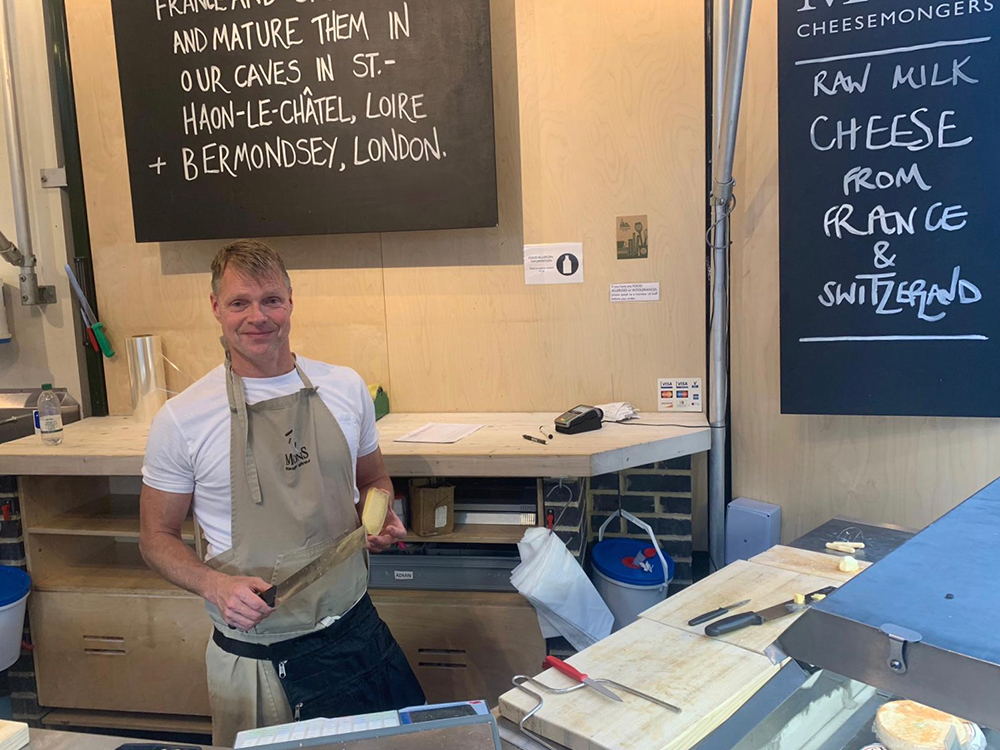
Food memoirs, as distinct from cookery books, and from the relatively new genre of ‘biographies’ of ingredients, used to fall into three rough groups: foraging, hunting or gathering food; producing or cooking food; and eating. Like the restaurateur Keith McNally’s recent I Regret Almost Everything, Michael Finnerty’s The Cheese Cure adds a fourth category, memoirs of those who sell or serve food.
These foodie books often blur at the margins and merge at the borders but usually share the characteristic of being narrated in the first person – and if recipes are given they are often incidental. (Of course, many of these authors also write cookery books.) There is a canon of such tomes by writers including Elizabeth David, M.F.K. Fisher, Jane Grigson, Wendell Berry, Julia Child, Patience Gray, A.J. Liebling and Joseph Wechsberg; and, more recently, Claudia Roden, Raymond Sokolov, Jeffrey Steingarten, Jonathan Meades, Bill Buford and Nigel Slater.
Besides the quality of their writing, these memoirs have in common wit, grace, delicacy and introspection. Though it tells mostly of the pleasures of food, Fisher’s work exemplifies these virtues. When she writes about youthful hunger, for example, she reminds us that it is a thing apart:
It is very hard for people who have passed the age of, say, 50, to remember with any clarity the hunger of their own puberty and adolescence… But I can recall its intensity still; I am not too far from it to understand its ferocious demands when I see a 15-year-old boy wince and whiten at the prospect of waiting a few more hours for food.
Fisher wrote this in 1946, when she was a sympathetic matron of 38. She remains one of the few food memoirists to take hunger and its feeling as a subject.
Finnerty, now aged 54, works part-time at Mons Cheesemongers in London’s Borough Market and part-time in Montreal, Canada, where he broadcasts a weekly live radio programme in French. His genre-defying book is an account of how he dealt with his mid-life predicament by taking leave from his job as a high-flying journalist to train as a cheesemonger.
It’s a remarkable tale, with only a tinge of bathos. Born in the Canadian province of Saskatchewan, he spent ‘the better part of a year’ in secondary school as an exchange student with a French family in St-Étienne, where he had his first experience of non-supermarket cheese. There’s a lacuna in the narrative and the reader never learns how or why he ended up in London, working as a researcher, then a reporter, then a producer for the BBC World Service and finally ‘multimedia news editor’ for the Guardian for ‘15 years on either side of the Millennium’ .
In the 2019 London Bridge stabbings, Finnerty and his customers took refuge in the cheese fridge in Borough Market
In 1999 he even bought an ex-council flat in Southwark, and in 2002 met his life partner, ‘a beautiful, compassionate, eccentric and understanding Frenchman’, about whose movements and whereabouts we somewhat annoyingly learn nothing more. Finnerty left his successful London life to return to Montreal, where for 13 years he presented Daybreak, the CBC early morning live radio show. He was well-paid, well-regarded and had fame of a sort: ‘Hell, my face is on billboards and on the side of CBC trucks.’ But, he writes, the job was ‘robbing me of joy’. It seems obvious that the killer factor was the uncivilised hours – getting up at 3 a.m., having ‘lunch’ at 8 a.m. when the programme finished, needing sleep as well as food at anti-social times. So he negotiated a six-month sabbatical and went to live in his London flat.
It soon occurs to him that both morale and his bank balance indicate that he should find a temporary job; and a meal in an Ottolenghi restaurant so tickles his foodie fancy that he applies to be a waiter there and works a trial shift, but fails. With lowered spirits, he sees an advert in Borough Market for a trainee cheesemonger, cheers up, applies, is taken on as an apprentice, passes his three-month probation and gets the job without ever mentioning his prior career.
Finnerty is physically fit – which is just as well, since
every day starts with sweeping, hauling out wheels of cheese, moving large tables, climbing ladders, moving boxes, wrapping with focus and precision, manipulating slates, cutting down through the thick pastes of Cheddars and Alpine cheeses with both hands on a knife, scrubbing surfaces to free them of cheese residue, bleaching and squeegeeing floors and rearranging the furniture.
He is so tired that he longs only to be horizontal, not even experiencing the hunger or thirst Fisher details so eloquently.

One attraction of his brave new career is the fraternity of fellow cheesemongers and market personnel – his descriptions and evaluations of them and his customers display the best writing in this book, and show that he is curious and cares about them as much as he does about the cheese he is handling and selling. There are a few outstanding set pieces, such as the account of the November 2019 knife attack at Fishmongers’ Hall, at the north end of London Bridge, which spread into Borough Market and resulted in Finnerty and some of his colleagues and customers taking refuge in the cheese fridge.
While much of this memoir is about Finnerty’s state of mind and feelings, he does not neglect the subject of his subtitle. Every chapter ends with a page or two on a single cheese, always readable, sometimes funny, in the manner of his great predecessors Pierre Androuet and Patrick Rance. He’s in love with cheese, passionately, and it shows. At the end of his sabbatical, as he prepares to return to Montreal and broadcasting, he worries about whether he’s deceived his mates and his boss. In the end he finds a compromise. Next time you’re shopping for cheese in Borough Market, ask if Michael is there to serve you.








Comments